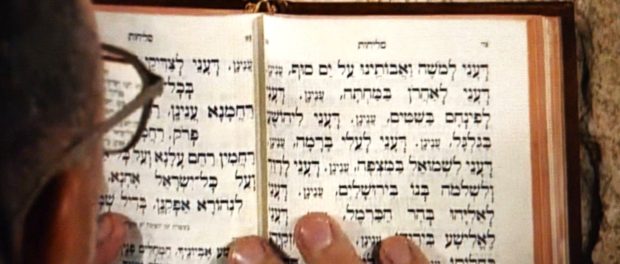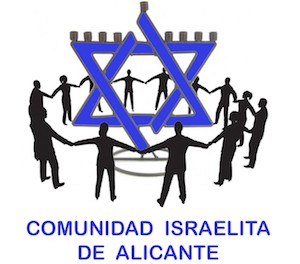Rosh Hashanah 5786

Day One Tishrei 1, 5786 /September 23, 2025 of Rosh Hashanah (Genesis 21:1-34; Numbers 29:1-6):
On the first day of Rosh Hashanah, the Torah reading focuses on our Patriarch Isaac‘s birth. The reading begins with the words, “And G‑d remembered Sarah.” According to the Talmud, God “remembered” Sarah, and chose to bless her with a child, on Rosh Hashanah. The reading also discusses Ishmael‘s expulsion from Abraham‘s household due to the negative influence he posed for Isaac, and the treaty between Abraham and Abimelech, king of the Philistines.
At the age of ninety, previously barren Sarah miraculously gave birth to a son, who, as per God’s instruction, was named Isaac. Isaac was circumcised when he was eight days old.
Sarah was overjoyed by the tremendous miracle. “Who would have said to Abraham that Sarah would nurse children,” She exclaimed. Abraham made a huge feast on the day that Isaac was weaned. Sarah noticed that Ishmael, Abraham’s eldest son born to him from her maidservant Hagar, was behaving inappropriately. She demanded from Abraham that he expel both Ishmael and Hagar from the household. G‑d instructed Abraham to hearken to Sarah’s words, for “your progeny will be called [only] after Isaac.”
Nevertheless, God promised Abraham that Ishmael’s descendents, too, will be made into a nation, for he, too, is Abraham’s seed. Abraham expelled Hagar and Ishmael; they wandered in the desert and eventually ran out of water. Ishmael was about to perish from thirst when an angel “opened Hagar’s eyes” and showed her a well of water from which to give Ishmael to drink. Ishmael grew up in the desert, became a skilled archer and married an Egyptian woman.
At that point, Abimelech, king of the Philistines, approaches Abraham and requested to enter into a treaty with him, whereby neither party will harm the other for three generations. Abraham agreed, but first reprimanded Abimelech concerning a well of water which he had dug which was stolen by Abimelech’s subjects. Abimelech proclaimed his innocence, claiming to have been unaware of the situation. Abraham took sheep and cattle, and gave it to Abimelech as a symbol of their treaty.
Abraham then set apart seven ewes from the flock. Abraham told Abimelech to take those seven ewes as evidence that he, Abraham, dug the well. Abraham planted an orchard and established an inn in Beer Sheba and proclaimed the name of G‑d to all passersby.
Maftir: The maftir reading details the various sacrifices offered in the Holy Temple on Rosh Hashanah, along with the accompanying wine libations, oil and meal offerings.
Day Two Tishrei 2, 5786 /September 24, 2025of Rosh Hashanah (Genesis 22:1-24; Numbers 29:1-6):
The Torah reading for the second day of Rosh Hashanah discusses the Binding of Isaac. On the day when we are judged by God, we invoke the merit of our Patriarchs, and their willingness to sacrifice all for God’s sake. The reading concludes with the birth of Rebecca, Isaac’s destined soulmate.
God commanded Abraham to take his son Isaac to the Land of Moriah, and offer him as a sacrifice on a mountain (eventually to become known as the Temple Mount). Abraham rose early in the morning, took along Isaac and necessary provisions, and set out for the Land of Moriah.
On the third day, Abraham spies the mountain from afar. He leaves behind his two servants and proceeds together with Isaac. In response to Isaac’s question, “We have the fire and the wood, but where is the sacrificial lamb?”, Abraham responds, “God will provide for Himself the lamb…”
They arrived at the place which God had designated. Abraham built the altar, bound Isaac, and placed him on the wood pyre atop the altar. As Abraham stretched out his hand to take the slaughtering knife, an angel appeared and ordered him to desist. “Now I know that you are God fearing, since you have not withheld your only son from Me!” Abraham offered a ram which was caught in a nearby thicket in lieu of his son, and named the area “The L-rd Will See.”
God promised Abraham great blessings as a reward for passing this difficult test. “I will make your descendents as numerous as the stars in heaven!” Abraham and Isaac returned home to Beer Sheba.
After these events, Abraham was notified that his sister-in-law, Milkah, had given birth to children. One of these children, Bethuel, was the father of Rebecca, Isaac’s future wife.
Maftir: The maftir reading details the various sacrifices offered in the Holy Temple on Rosh Hashanah, along with the accompanying wine libations, oil and meal offerings.
Primer día de Rosh Hashaná: 1 de Tishrei, 5786 / 23 de septiembre de 2025 (Génesis 21:1-34; Números 29:1-6):
En el primer día de Rosh Hashaná, la lectura de la Torá se centra en el nacimiento de nuestro patriarca Isaac. Comienza con las palabras: «Y Dios se acordó de Sara». Según el Talmud, Dios «se acordó» de Sara y decidió bendecirla con un hijo, precisamente en Rosh Hashaná. La lectura también habla de la expulsión de Ismael del hogar de Abraham, debido a su mala influencia sobre Isaac, y del pacto entre Abraham y Abimelec, rey de los filisteos.
A los noventa años, Sara, quien había sido estéril, dio a luz milagrosamente a un hijo, que, según la instrucción de Dios, fue llamado Isaac. Isaac fue circuncidado a los ocho días.
Sara se llenó de alegría ante este gran milagro. «¿Quién hubiera dicho a Abraham que Sara amamantaría a hijos?», exclamó. Abraham celebró un gran banquete el día del destete de Isaac. Sara notó que Ismael, el hijo mayor de Abraham con su esclava Agar, se comportaba mal. Pidió a Abraham que los expulsara a ambos del hogar. Dios le ordenó a Abraham que escuchara a Sara, pues «tu descendencia será llamada [únicamente] por Isaac».
Sin embargo, Dios prometió a Abraham que los descendientes de Ismael también formarían una nación, porque él también era descendiente de Abraham. Abraham expulsó a Agar e Ismael; vagaron por el desierto y se quedaron sin agua. Ismael estaba a punto de morir de sed cuando un ángel «abrió los ojos de Agar» y le mostró un pozo de agua para que Ismael pudiera beber. Ismael creció en el desierto, se convirtió en un hábil arquero y se casó con una mujer egipcia.
En ese momento, Abimelec, rey de los filisteos, se acercó a Abraham y le pidió firmar un pacto, por el cual ninguna de las partes haría daño a la otra durante tres generaciones. Abraham estuvo de acuerdo, pero primero reprendió a Abimelec por el pozo de agua que había excavado y que los súbditos de Abimelec habían usurpado. Abimelec se declaró inocente, alegando desconocer la situación. Abraham tomó ovejas y ganado, y se los entregó a Abimelec como símbolo de su pacto.
Luego, Abraham apartó siete ovejas del rebaño. Le dijo a Abimelec que tomara esas siete ovejas como prueba de que él, Abraham, había excavado el pozo. Abraham plantó un huerto y estableció una posada en Berseba, y proclamó el nombre de Dios a todos los transeúntes.
Maftir: La lectura del Maftir detalla los diversos sacrificios que se ofrecían en el Santo Templo en Rosh Hashaná, junto con las libaciones de vino, aceite y las ofrendas de harina.
Segundo día de Rosh Hashaná: 2 de Tishrei, 5786 / 24 de septiembre de 2025 (Génesis 22:1-24; Números 29:1-6):
La lectura de la Torá para el segundo día de Rosh Hashaná trata sobre el Sacrificio de Isaac. En el día en que somos juzgados por Dios, invocamos el mérito de nuestros Patriarcas y su disposición a sacrificarlo todo por amor a Dios. La lectura concluye con el nacimiento de Rebeca, la compañera predestinada de Isaac.
Dios le ordenó a Abraham que llevara a su hijo Isaac a la tierra de Moria y lo ofreciera en sacrificio en una montaña (que más tarde se conocería como Monte del Templo). Abraham se levantó temprano por la mañana, tomó a Isaac y las provisiones necesarias, y partió hacia la tierra de Moria.
Al tercer día, Abraham divisó la montaña a lo lejos. Dejó a sus dos sirvientes y continuó el viaje con Isaac. Ante la pregunta de Isaac: «Tenemos el fuego y la leña, pero ¿dónde está el cordero para el sacrificio?», Abraham respondió: «Dios proveerá el cordero…».
Llegaron al lugar que Dios les había señalado. Abraham construyó el altar, ató a Isaac y lo colocó sobre la leña del altar. Cuando Abraham extendió la mano para tomar el cuchillo, apareció un ángel y le ordenó detenerse. «Ahora sé que temes a Dios, porque no me has negado a tu único hijo». Abraham sacrificó un carnero que encontró en un arbusto cercano en lugar de su hijo, y llamó a ese lugar «El Señor proveerá».
Dios prometió a Abraham grandes bendiciones como recompensa por superar esta difícil prueba. «Haré que tu descendencia sea tan numerosa como las estrellas del cielo», le dijo. Abraham e Isaac regresaron a su hogar en Berseba.
Tras estos acontecimientos, Abraham recibió la noticia de que su cuñada, Milca, había dado a luz. Uno de sus hijos, Betuel, fue el padre de Rebeca, la futura esposa de Isaac.
Maftir: La lectura del Maftir describe los diversos sacrificios que se ofrecían en el Templo de Jerusalén en Rosh Hashaná, junto con las libaciones de vino, el aceite y las ofrendas de cereal.
